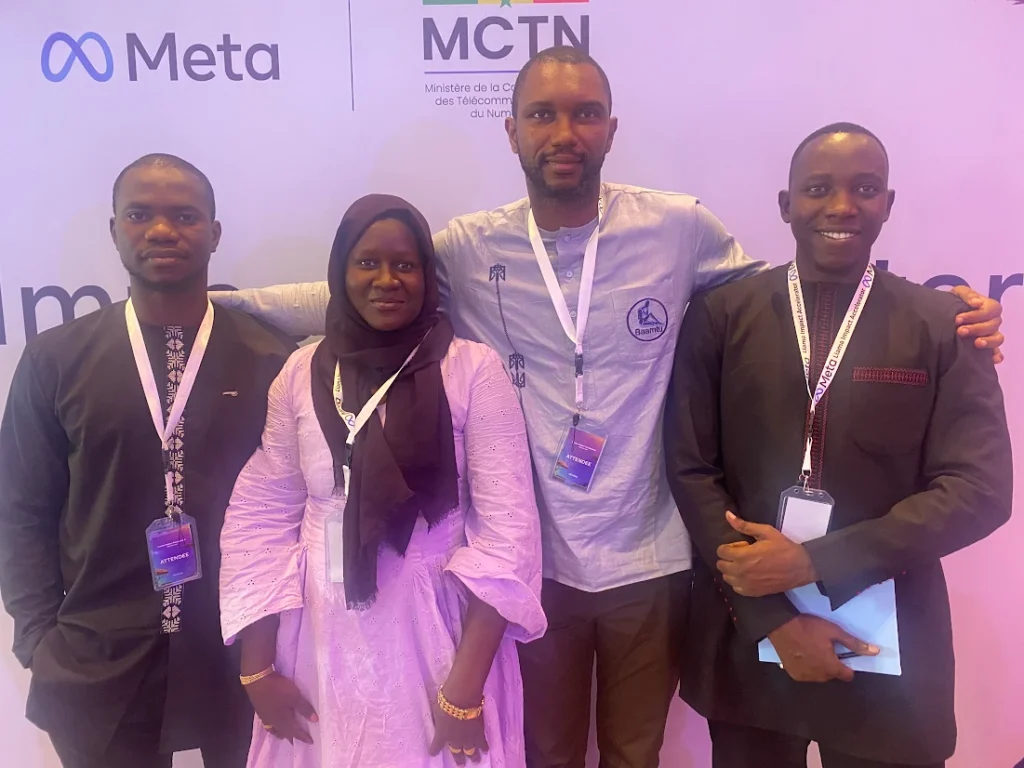In Senegal, as everywhere in the world, every citizen needs administrative documents. At birth, a certificate is required. of birth, upon death it is theacte de décès, and between the two, it is +700 documents ( ID card, passport, voter registration card, driving license, etc.). This may be required by public services.
Accessing essential administrative documents remains a real challenge for a large part of the population. Citizens often have to go to several counters, wait long periods of time, and understand complex administrative French.
In this context, Baamtu presented a multilingual conversational assistant at the LLAMA Impact Accelerator in Meta. The vision of this project is to enable all citizens to easily access services, regardless of their location. They will be able to interact with a conversational assistant to follow the procedure for obtaining the documents they need. The tool works in several languages, including Wolof, Fulani, Serer, and Diola.

Table of content
ToggleI. Enjeux des démarches administratives au Sénégal
Administrative procedures in Senegal are time-consuming and difficult. Citizens often have to go to multiple counters, wait long periods, and understand complex administrative French. These obstacles have direct impacts: delays in their studies, slowed careers, and difficulties accessing basic rights.
1. Language barriers and accessibility
Most documents and forms are in French, a language that less than half of the population fully masters, while the literacy rate is 56.9% (in 2021), with a higher trend in urban areas (70.2%) than in rural areas (42.1%)This situation often forces citizens to resort to intermediaries to complete or obtain certain documents, which results in additional costs.
2. Administrative dysfunctions and archaic management
Delays are exacerbated by strikes, staff absences, and frequent computer outages. Archive management remains largely manual, complicating document retrieval and increasing the risk of loss, damage, and fraud.
3. Insufficient infrastructure and indirect costs
Many administrative offices are dilapidated or overcrowded, making it difficult to serve the public, especially those with reduced mobility. Furthermore, citizens often have to resort to intermediaries to expedite procedures, which increases the overall cost of obtaining documents.
II. Solution for administrative procedures: the multilingual chatbot
1. Features and Technologies
To address the identified challenges, Baamtu has developed a multilingual conversational assistant. It understands and responds in French as well as in local Senegalese languages, such as Wolof, Fulani, and Serer. This solution would use advanced large language model (LLM) technologies such as Llama.
The chatbot integrates several key modules:
- Intent detection : understands the user's request precisely.
- Response Generation (NLG) : provides clear and relevant instructions.
- Speech recognition (Speech-to-Text) : allows you to ask questions orally.
- Text-to-Speech : plays back the answers audibly.
Thanks to this multi-channel architecture, the chatbot can be used via mobile, web or WhatsApp, guaranteeing maximum accessibility, even for people living in isolated areas or with mobility difficulties.
2. Demonstration and practical use of the chatbot for administrative paperwork
We can therefore cite examples of tasks which are simplified with the shabtot dedicated to administrative papers:
- When asked how to obtain a birth certificate, the chatbot immediately indicates the relevant services, such as Senegalese diplomatic or consular representations.
- A question about obtaining a national identity card generates a clear answer that complies with official procedures.
- The chatbot can also request an authentication document (for example, an image of an identity card), interact directly with the systems of the relevant ministry to verify the information, and then return the requested administrative document (such as a criminal record extract) directly to the user, after validation.
These interactions demonstrate that the conversational assistant does more than provide generic information. It responds accurately to citizens' specific requests, while simplifying the administrative process. Thus, it contributes to social inclusion and facilitates access to public services.
3. Baamtu's multilingual chatbot, proven AI with over 50,000 users
The multilingual chatbot would be based on Kàllaama, a suite of AI solutions developed by Baamtu since 2018. It has already been used in sectors such as healthcare and finance. Thanks to specific training and a targeted fine-tuning, the chatbot accurately understands user queries and provides reliable answers.
To date, more than 50,000 users have interacted with Kàllaama-based solutions, demonstrating the robustness and relevance of the technology in real-life contexts.
Join Baamtu to transform access to public services in Africa!
We invite public institutions, technology partners and investors to discover how our multilingual chatbot can revolutionize citizen-administration interaction.
Contact us today for a personalized demonstration and explore collaboration opportunities to expand this innovative solution across the African continent: Click here!
And to receive our next news in your mailbox: Click here!